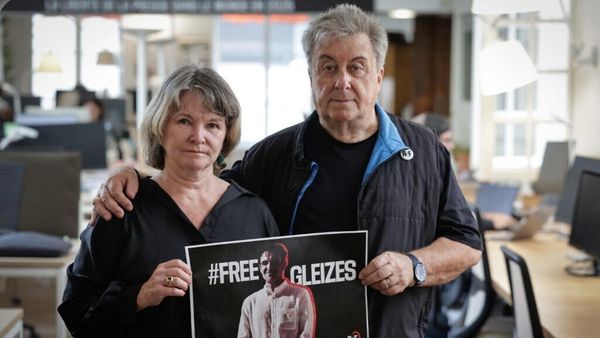
When he came to the throne a year ago, King Salman of Saudi Arabia was expected to continue to provide the relative stability which characterised the rule of his half-brother, King Abdullah.
Instead, the reign of Salman bin Abdulaziz al-Saud, 80, has been marked by wars in Yemen and Syria, an ongoing feud with Iran and mass executions
King Salman was also quick to shock the old order and appoint his favourite son, Prince Mohammed bin Salman, regarded as "the most dangerous man in the world", as both defence minister and deputy crown prince when he was 29.
The father and son's power has dramatically increased since the first few months of their rule.
These are the reasons for the ongoing controversy surrounding King Salman's rule:
Mass executions
Last year, Saudi Arabia executed 158 people, the highest number in two decades, according to Human Rights Watch.
International condemnation followed the news the state had sentenced six teenage offenders to death.
Ali Mohammed al-Nimr, who was 17 when he was detained, is due to be crucified - his headless corpse displayed in public for several days.
Abdullah al-Zaher, who was 15 when he was arrested, could be beheaded at any moment, making him the youngest person to be sentenced to death.
War in Yemen
Two months into King Salman's reign, Saudi Arabia led a coalition of 10 nations into a controversial war in Yemen, which continues to this day.
Code named Operation Decisive Storm, the king ordered the bombing of Shia Houthis and forces loyal to former President of Yemen, who was deposed in the 2011 uprising.
The Saudi-led air campaign conducted air strikes in apparent violation of the laws of war, using banned cluster munitions, Human Rights Watch reported.
Almost 6,000 people are estimated to have been killed, almost half of those civilians. The war is also costing the Saudi treasury billions of riyals.
Backing rebels in Syria
When the uprising against Syrian President Bashar al-Assad began in 2011, Saudi Arabia made it clear they backed the rebels and wanted the removal of President Assad.
In December, Saudi Arabia held a meeting in an attempt to unite the disparate opposition groups in Syria. Many political and rebel factions in Syria agreed a common negotiating position for talks which could lead to the replacement of President Assad.
The Gulf state is also discussing sending special forces to Syria as part of US-led efforts to fight Isis.
Feud with Iran
Earlier this month, the state executed 47 people for terrorism offences, including the prominent Shia cleric Sheikh Nimr al-Nimr.
The execution of the cleric led a mob to set fire to the Saudi embassy in Tehran, which some commentators believe could only have happened with the approval of Iranian authorities.
Following the ransacking, Saudi Arabia immediately broke all diplomatic, trade and travel ties with Iran, leading to escalating tensions between the two Middle East powers.
While Saudi Arabia is backing the ousted Sunni-led government in Yemen, Iran backs the Shia Houthi rebels.
The future of the Saudi throne
Eight of the 12 surviving sons of Saudi Arabia's founding monarch support a move to oust King Salman and replace him with his 73-year-old brother, according to a dissident prince.
When King Salman ascended the Saudi throne in January 2015, he was already ailing and relying heavily on his son. There are several reports he suffers from Alzheimer's disease and is only able to concentrate for a few hours a day.
Currently, the succession is due to hand the throne to the Crown Prince, Mohammed bin Nayef, 56, who is also interior minister.











